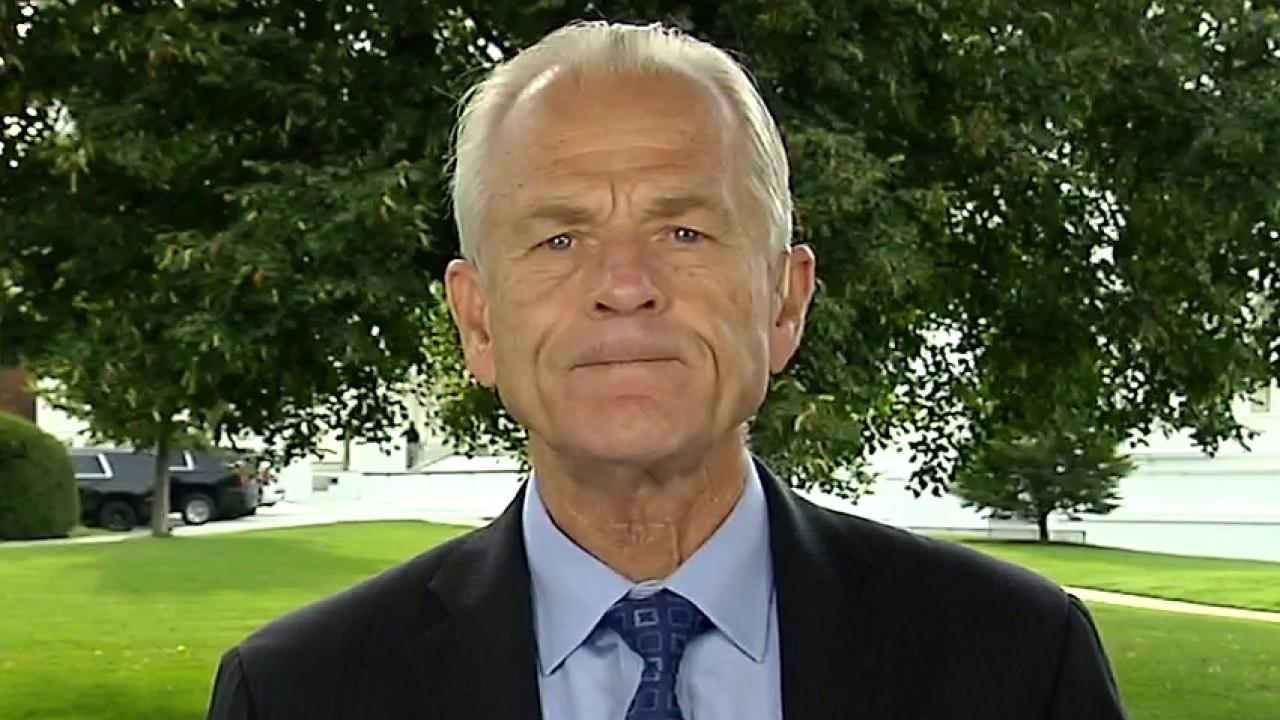TikTok deal talks are snarled over fate of app’s algorithms
Bidders are unsure whether China’s new export restrictions cover the service’s algorithms
Deal talks for TikTok’s U.S. operations have hit a snag over the question of whether the app’s core algorithms can be included as part of a deal, according to people familiar with the matter.
The algorithms, which determine the videos served to users and are seen as TikTok’s secret sauce, were considered part of the deal negotiations up until Friday, when the Chinese government issued new restrictions on the export of artificial-intelligence technology, according to people familiar with the matter.
GET FOX BUSINESS ON THE GO BY CLICKING HERE
Now both sides are trying to figure out whether the order means the algorithms need Chinese government approval for transfer, and if so, whether Beijing would sign off. The complexity involved has reduced the chances that a deal could be completed soon.
TikTok’s parent company, ByteDance Ltd., has said it would comply with the Chinese government order, and is trying to get clarity from Beijing on how to proceed with a sale if the new restrictions apply to its algorithms, some of the people said.
For bidders, the idea of buying TikTok without the algorithms completely changes the outlook on what the companies are bidding for, other people familiar with the situation said. They believe a large portion of the value of TikTok is in the suggestion algorithms that keep users glued to the app.
WHITE HOUSE TO TARGET MORE CHINESE APPS FOLLOWING TIKTOK, WECHAT CRACKDOWNS: NAVARRO
A person close to the talks likened TikTok without its algorithms to a fancy car with a cheap engine. A different person close to the bidders said that not getting the algorithms would be a surprise, and was skeptical that the deal would proceed without them.
Other people have suggested that one of the suitors could still buy TikTok for its users, and develop new algorithms for the app.
The issue highlights how the participants in the high-profile deal talks are in the middle of a global tug of war between two superpowers that have each issued strict demands.
CHINA'S NEW TECH EXPORT CONTROLS COULD GIVE BEIJING A SAY IN TIKTOK SALE
Two main groups are now vying to buy part of TikTok: Microsoft Corp. has teamed up with Walmart Inc., and Oracle Corp. has formed partnerships with some of ByteDance’s investors, including Sequoia Capital, General Atlantic and Coatue Management LLC.
ByteDance is asking $30 billion for TikTok’s U.S. operations, The Wall Street Journal has reported, though talks on valuation were fluid and continuing as of late last week.
The Trump administration has ordered the Chinese company to unload the platform’s American operations by mid-September or have it shut out of the U.S. market entirely. The administration has cited censorship and data-security concerns as reasons to force the sale.
Chinese commentators have described the Trump administration’s demand as an attempt by the U.S. government to appropriate Chinese technology in a forced fire sale. Beijing retaliated on Friday, when the Chinese government added content-recommendation technology to its list of export restrictions.
The addition was specifically to address a possible sale by TikTok of its core technology to a U.S. company, people familiar with the government’s thinking said.
TIKTOK CEO KEVIN MAYER RESIGNS FOLLOWING TRUMP BAN THREAT
TikTok has soared in popularity in the U.S. over the past couple of years, recently reaching 100 million monthly users in the U.S., from about 11 million in early 2018, the company has said. Industry analysts attribute part of the app’s growth to a powerful core algorithm that is built to quickly recommend different types of content to people depending on their preferences.
Eugene Wei, a San Francisco-based startup investor and former tech executive, said TikTok’s success is a direct result of ByteDance’s mastery of artificial intelligence. Using a process known as deep learning, ByteDance has trained its algorithms to deliver highly personalized content.
The platform serves users new videos one by one, measures how they interact with the videos, then feeds that data back into the algorithm. This allows the system to serve up videos each user is likely to find compelling.
“When you gaze into TikTok, TikTok gazes into you,” said Mr. Wei, who has worked at Facebook Inc.’s Oculus and Amazon.com Inc. “To see it as merely a novelty meme video app for kids is to miss what is its much greater disruptive potential.”
One of the people familiar with Beijing’s thinking said the goal of the new restrictions is to delay the deal to allow the Chinese government to have a say as well as to subject it to a level of Chinese government scrutiny similar to that imposed by the Committee on Foreign Investment in the U.S. The panel within the U.S. Treasury Department has forced the unwinding of several Chinese acquisitions on national-security grounds and has scrutinized TikTok.
WALMART, MICROSOFT TEAM UP IN BID FOR TIKTOK'S US ASSETS
Chinese Foreign Ministry spokesman Zhao Lijian responded to a question about a potential TikTok sale at a regular media briefing on Monday by accusing the U.S. of using “economic-bullying and political-manipulation tactics against non-U.S. companies.”
Withholding the core algorithm wouldn’t necessarily spell the end of TikTok’s U.S. operations, as software engineers could still rebuild it using TikTok’s user data as a current training data set, according to Mr. Wei. But that process might take time and could lead the app to lose users to rivals, he said.
CLICK HERE TO READ MORE ON FOX BUSINESS
Facebook Inc.’s Instagram recently introduced a service called Reels that copies many of TikTok’s core features.
—Raffaele Huang and Cara Lombardo contributed to this article.
Write to Liza Lin at Liza.Lin@wsj.com, Aaron Tilley at aaron.tilley@wsj.com and Georgia Wells at Georgia.Wells@wsj.com




















